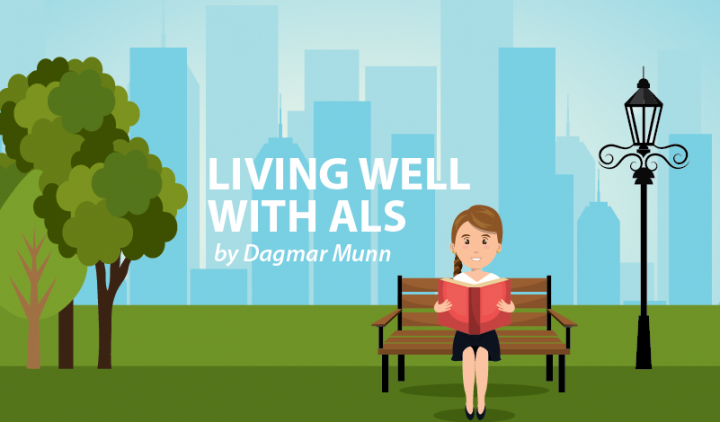Outsmarting the ALS Identity Thief

Lately, I’ve seen an escalation of messages urging me to protect myself from hackers, scammers, and other potential identity thieves. But there’s one identity thief that’s always on my radar: my ALS.
That’s because the ongoing symptoms of ALS challenge the very essence of my sense of self. I’ve managed to keep a strong hold on my self-identity, and here’s how you can do it, too:
Who owns who?
Like many ALS patients, the news that I had ALS was initially devastating.
Throughout the following weeks, ALS dominated my mind both day and night. Every muscle twitch or cramp was cause for laser-focused concern. You could say ALS owned me.
This is the point where many patients reach a mental fork in the road. We imagine worst-case scenarios, mentally give up, and relinquish our dreams and aspirations. In other words, we let ALS steal our identity.
We can do this, or we can follow the other path by “owning” our ALS.
I decided to learn everything I could about ALS. I scoured the internet, joined online chat rooms, watched YouTube videos, and questioned the team at my ALS clinic. I became a walking encyclopedia for all things ALS. And I know I probably drove my friends and family nuts, but it was an important turning point for me.
Hidden opportunity
Studying ALS wasn’t my only task, I also studied me. It was a time of deep self-reflection. I knew who I was before ALS, including what I did and hoped to do. Now, I asked, “Who am I?” and “What am I still able to do?”
Roles reversed. My husband became my caregiver, and I had to learn it was OK to ask for help. I helped my friends learn how to best help me.
Of course, this didn’t happen all at once, nor was it easy to do. I found that learning to live with a critical illness is a process of shifts and struggles. But digging deep to build self-confidence and emotional resilience were essential keys to getting to where I am today.
Illness as a positive identity
Looking back, I’ll admit I didn’t intend to be an advocate for ALS awareness. I just wanted it to go away, or if not, at least not change my life. But change it did. My ALS is part of my identity, but it doesn’t own me.
Sure, my current life is not what I had envisioned for myself 10 years ago, but here I am. And I am going to use what I have learned about ALS to spread awareness and educate and support others, including by writing this column and co-moderating the ALS News Today Forums.
Is ALS stealing your identity? Try a few of my strategies and you can learn how to live well while living with ALS.
***
Note: ALS News Today is strictly a news and information website about the disease. It does not provide medical advice, diagnosis, or treatment. This content is not intended to be a substitute for professional medical advice, diagnosis, or treatment. Always seek the advice of your physician or other qualified health provider with any questions you may have regarding a medical condition. Never disregard professional medical advice or delay in seeking it because of something you have read on this website. The opinions expressed in this column are not those of ALS News Today or its parent company, Bionews, and are intended to spark discussion about issues pertaining to ALS.







Christine Moretti
I can definitely relate to letting the disease own you, especially right after diagnosis. I wallowed in the “what if’s” and “when’s” myself until one day I decided that it was my turn to take charge and began involving myself with research studies and eventually advocacy. We can’t control our disease but we can control our approach to it. Thank you, Dagmar, for continually shining a light on the positive side of ALS life.
Dagmar Munn
Thank you, Christine. I'm so glad this column resonated with you. It sounds like you are well on your way to "living well while living with ALS." :-)
Peter Kurtzhals
Thanks for insightful and helpful reflections once again. You are a star.
Dagmar Munn
Peter, Thank you for your kind words :-) Dagmar
Cathy K
Dagmar, Wonderful post. You are right, we cannot let ALS define us. After my father passed of ALS in 1999 our family found out we had a familial form of the disease. Since then, of his 9 children, 5 have been diagnosed with ALS, including me. We support one another on this journey, and our family is stronger because of it. We have been a caregivers, advocates to Washington DC, event sponsors and speakers, fundraisers and researchers. Together we work to raise awareness and to find answers, not for ourselves, but for our 18 children, now at 50% risk. Yes, there are things we have had to give up, but they are not what define us. We are fighter, and we will continue to fight for a cure for our family and our dream of a world without ALS.
Dagmar Munn
Cathy - - a heartfelt thank you, for all you do and, for what your family does to help rid the world of ALS. Dagmar